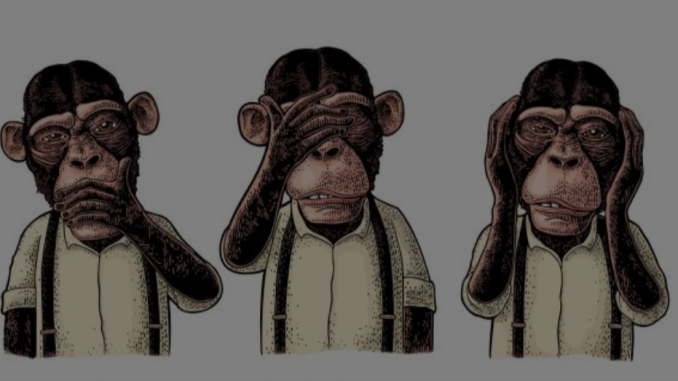
Officials at the University of York in the United Kingdom removed a depiction of the “three wise monkeys” from the school’s website after organizers of an upcoming history conference complained the image could be deemed offensive to minorities.
“Upon reflection, we strongly believe that our first poster is not appropriate as its iconology promulgates a longstanding visual legacy of oppression and exploits racist stereotypes,” the organizers said.
The three wise monkeys were supposed to represent the Japanese proverb “see no evil, hear no evil, speak no evil,” which describes people who turn a blind eye to wrongdoing.
But the organizers worried the imagery could be offensive.
“We bring this to your attention, so that we may be held accountable for our actions and, in our privileges, do and be better,” the organizers said.
The move to remove the image caused confusion among some scholars in Japanese history, with the former curator of the British Museum’s Japanese collections Tim Clark saying he had “no idea” why people would find the image racist.
Japanese Buddhism expert Dr. Lucia Dolce echoed Clark’s sentiment, arguing that the monkeys would not be used to insult other cultures or races “because the monkey is a sacred being. They are vehicles of the deities.”
But the university defended its decision to pull the image, arguing that monkeys had been used in “derogatory” ways in the past.
“The Japanese symbol of the three wise monkeys was used to represent a postgraduate conference about the sensory experiences of the body, and it also appeared on a document that asked for submission of research papers to the conference on a range of areas, one of which included papers that represented black, indigenous and people of colour,” a university spokesperson said.
“It was considered… that a monkey, which has been used in a derogatory way in the past, could cause offence in this context, despite this not being the intention of the organisers, so the image was removed,” the statement continued.
British political commentator Calvin Robinson wasn’t convinced by the university’s rationale, explaining that “the monkeys are seen as sacred beings with positive connotations” in Japanese culture.
“I can’t help but feel like the only racism here is the assumption of York University’s academics,” Robinson said.
*story by The Washington Examiner